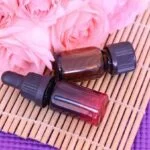Aromatherapy, the practice of using essential oils to promote health and well-being, has gained immense popularity in recent years. But how exactly does this ancient practice affect the brain? The answer lies in the intricate relationship between our sense of smell and our neurological functions. By harnessing the power of aroma, aromatherapy has been shown to impact our brain in profound ways, influencing our emotions, cognition, and overall mental health.
In this article, we will delve into the fascinating world of aromatherapy and explore its effects on the brain. We will begin by providing an introduction to the concept of aromatherapy and why it has become increasingly popular as a natural remedy for various ailments. Then, we will take a step back in time and trace the roots of aromatherapy through a brief history that reveals its use in ancient civilizations.
Moving on, we will dive into the science behind aromatherapy, shedding light on the chemical compounds found in essential oils that are responsible for eliciting specific effects on the brain. Additionally, we will explore the intricate neurological mechanisms involved in how aromatherapy affects us, such as our olfactory system and limbic system. Understanding these processes is crucial to comprehending why aromatherapy can have such a powerful impact on our well-being.
As we uncover how aromatherapy affects the brain, we will also explore its numerous benefits on mental health. Stress reduction, improved mood, and enhanced cognitive function are just a few positive outcomes that can be experienced through regular use of essential oils. Furthermore, we will highlight specific essential oils known for their brain-boosting effects and provide insights into their unique properties.
To ensure optimal brain stimulation through aromatherapy, various techniques can be employed. Inhalation methods like diffusers or personal inhalers offer prospective benefits while massages or baths with essential oils allow for absorption through skin contact. Different methods may work better for different individuals, and we will discuss these approaches in detail.
A Brief History of Aromatherapy
Aromatherapy, the use of aromatic plant extracts, has a rich history that dates back thousands of years. This section will explore the origins of aromatherapy and its use in ancient civilizations.
Origins of Aromatherapy
The practice of using aromatic substances for healing and spiritual purposes can be traced back to ancient civilizations such as Egypt, China, and India. In these cultures, essential oils were highly valued for their therapeutic properties and were used in various rituals, cosmetics, and medicinal preparations.
Egyptians are credited with being one of the earliest civilizations to incorporate aromatherapy into their daily lives. They utilized essential oils in religious ceremonies and embalming practices. The famous Egyptian queen Cleopatra was known to have indulged in fragrant baths infused with essential oils as part of her beauty regimen.
In China, aromatic plants were believed to possess powerful life forces or “chi.” These plants were used in acupuncture treatments, herbal medicine formulations, and to create incense blends that were burned during meditation or religious ceremonies.
Similarly, ancient Ayurvedic texts from India mention the use of fragrant herbs and oils for both physical and emotional well-being. Ayurvedic medicine emphasizes the balance between mind, body, and spirit, with aromatherapy playing a significant role in achieving this balance.
Ancient Uses of Aromatherapy
Ancient civilizations incorporated aromatherapy into various aspects of their everyday lives. One prominent example is the use of essential oils as perfumes. Perfumes made from natural plant essences were not only used for personal grooming but also held symbolic significance. The scents were believed to attract positive energy or repel negative influences.
Moreover, aromatics played a crucial role in religious practices across different cultures. They were used during ceremonies to harmonize the mind and spirit while establishing a connection with higher powers. Burning incense made from aromatic resins or plants was a common practice to create a sacred atmosphere and evoke spiritual experiences.
Additionally, ancient civilizations recognized the therapeutic properties of specific essential oils. Egyptians, for example, used frankincense and myrrh for their antiseptic and healing properties. In Ayurvedic medicine, various essential oils were employed for their ability to balance doshas (energetic forces) and treat physical ailments.
The Science Behind Aromatherapy
Aromatherapy is a practice that utilizes essential oils derived from plants to improve physical and mental well-being. While many people enjoy the pleasant scents of essential oils, the question remains: how does aromatherapy actually affect the brain? To unravel this mystery, it is essential to delve into the science behind aromatherapy and understand the chemical compounds in essential oils that produce desired effects on the brain.
Chemical Composition of Essential Oils
Essential oils are highly concentrated extracts derived from various parts of plants such as flowers, leaves, bark, and roots. These oil extracts contain a complex mixture of volatile chemical compounds that are responsible for their unique properties and therapeutic effects. The main constituents found in essential oils include terpenes, terpenoids, esters, aldehydes, alcohols, and phenols.
Each essential oil has its own composition of these chemicals, giving them distinct aromas and potential health benefits. For example, lavender oil contains high levels of linalool and linalyl acetate, which are known for their calming and relaxing properties. On the other hand, citrus essential oils like lemon or orange oil contain limonene that is often associated with uplifting and mood-enhancing effects.
Olfactory System and Limbic System
The olfactory system plays a crucial role in how aromatherapy affects the brain. When we inhale aromatic molecules from essential oils, they stimulate olfactory receptors located in the nasal cavity. These receptors send signals to the olfactory bulb in the brain’s limbic system which houses structures involved in emotions, memories, motivation, and stress response.
The limbic system is particularly sensitive to smells because it has direct connections with areas like the amygdala and hippocampus. The amygdala processes emotions while the hippocampus plays a role in memory formation. This direct connection between scent processing and emotional and memory centers may explain why certain essential oils can have profound effects on our mood, stress levels, and cognition.
Understanding the chemical composition of essential oils and the neurological mechanisms of olfaction and limbic system activation provides a scientific foundation for comprehending how aromatherapy affects the brain. By studying these processes, researchers can gain valuable insights into the potential therapeutic applications of aromatherapy for various mental health conditions.
How Does Aromatherapy Affect the Brain
Aromatherapy has a profound impact on the brain, primarily through the neurological mechanisms it engages. Two crucial systems involved in this process are the olfactory system and the limbic system.
The olfactory system plays a critical role in how aromatherapy affects the brain. When we inhale essential oils, odor molecules enter our nasal passages and bind to olfactory receptors. These receptors send signals to the olfactory bulb, which relays information to various areas of the brain, including the limbic system. The olfactory system has direct connections with structures like the amygdala and hippocampus, which are involved in emotions and memory processing.
The limbic system is another key player in how aromatherapy influences the brain. It is responsible for regulating emotions, behavior, motivation, and memory formation. When essential oil molecules reach the limbic system through inhalation or absorption through the skin, they can trigger various responses based on their chemical composition. For example, oils high in linalool have been found to have calming and sedative effects by activating GABA receptors in the brain.
To better understand how aromatherapy affects different aspects of brain function, it is helpful to examine specific neurotransmitters and pathways involved. For instance:
- Serotonin levels may increase when certain essential oils are inhaled or applied topically. Serotonin is associated with mood regulation and can contribute to feelings of happiness and well-being.
- Inhalation of lavender essential oil has been shown to increase alpha brain waves, which are associated with relaxation and improved focus.
- Some essential oils have been found to modulate gamma-aminobutyric acid (GABA) receptors in the brain, leading to a calming effect.
Benefits of Aromatherapy on the Brain
Aromatherapy has been used for centuries as a natural method to promote wellness and improve mental health. Research has shown that aromatherapy can have several positive effects on the brain, resulting in reduced stress levels, improved mood, and enhanced cognitive function.
One of the main benefits of aromatherapy is its ability to reduce stress. Certain essential oils, such as lavender and chamomile, have calming properties that can help relax the mind and body.
When inhaled, these aromatic molecules travel through the olfactory system and stimulate the limbic system in the brain, which plays a crucial role in regulating emotions and stress responses. A study published in the Journal of Alternative and Complementary Medicine found that inhalation of lavender essential oil significantly reduced stress levels in participants compared to a control group.
In addition to stress reduction, aromatherapy can also have a positive impact on mood. Essential oils like citrus scents, such as lemon or orange, are known to be uplifting and can help combat feelings of depression or anxiety. These oils work by stimulating the production of neurotransmitters like serotonin or dopamine, which are associated with positive emotions. Moreover, research has demonstrated that inhaling certain essential oils can activate specific areas of the brain involved in mood regulation.
Furthermore, aromatherapy has been found to enhance cognitive function. Rosemary oil, for example, has been shown to improve memory performance and alertness. The aroma of rosemary stimulates certain receptors in the brain that are responsible for memory formation and learning. In a study conducted at Northumbria University in the UK, participants exposed to rosemary oil aroma exhibited better cognitive performance compared to those without exposure.
To fully experience the mental health benefits of aromatherapy, different methods of application can be used. Inhalation is one common technique where essential oils are added to diffusers or applied onto cotton balls for direct inhalation. This allows the aromatic molecules to travel directly through the olfactory system and to the brain. Another popular method is massage, where diluted essential oils are applied to the skin and absorbed into the bloodstream, providing a systemic effect on the body and mind.
Popular Essential Oils and Their Brain-Boosting Effects
Essential oils are derived from various plant sources and each oil has its own unique properties and potential benefits. When it comes to brain health and overall well-being, certain essential oils have been found to have specific brain-boosting effects. These oils can help support cognitive function, improve mood, reduce stress, and promote relaxation.
One popular essential oil known for its brain-boosting effects is rosemary oil. Rosemary has been shown to enhance cognitive performance and improve memory. Research suggests that the aroma of rosemary can increase alertness and improve mental clarity. In a study published in Therapeutic Advances in Psychopharmacology, participants who were exposed to rosemary oil demonstrated improved cognitive performance compared to those who were not exposed.
Another key essential oil for brain health is peppermint oil. Peppermint has a cooling and invigorating scent that can help stimulate the mind. It is commonly used to promote mental clarity and focus. The aroma of peppermint oil has also been found to enhance memory retrieval and increase alertness. A study published in the International Journal of Neuroscience showed that participants who were exposed to the aroma of peppermint oil experienced improved cognitive performance.
Lavender oil is widely known for its calming and relaxing properties, but it also has positive effects on the brain. Lavender has been shown to reduce anxiety and promote better sleep, which can in turn improve cognitive function. Research published in Frontiers in Behavioral Neuroscience found that inhalation of lavender oil reduced stress levels and increased feelings of relaxation.
| Essential Oil | Brain-Boosting Effects |
|---|---|
| Rosemary | Increase alertness, improve memory |
| Peppermint | Promote mental clarity, enhance memory retrieval |
| Lavender | Reduce anxiety, promote relaxation and better sleep |
These are just a few examples of essential oils that have been studied for their brain-boosting effects. It’s important to note that individual responses to essential oils may vary, and it’s always best to consult with a healthcare professional or aromatherapist before using essential oils for specific purposes.
Aromatherapy Techniques for Optimal Brain Stimulation
Aromatherapy techniques encompass various methods of application to optimize brain stimulation and achieve the full benefits of this practice. The choice of technique largely depends on personal preference and desired outcomes. Here are some popular methods commonly used in aromatherapy:
- Inhalation: Inhalation is one of the most common and effective ways to experience the benefits of aromatherapy. It involves direct inhalation of essential oils through methods such as using a diffuser, inhaling from a bottle or tissue, or steaming.
When inhaled, volatile molecules from essential oils enter the olfactory system and stimulate certain areas in the brain associated with emotions and memory, such as the amygdala and hippocampus. This method is particularly useful for mood enhancement, stress reduction, and mental clarity. - Massage: Aromatherapy massage combines both touch therapy and the therapeutic properties of essential oils. During a massage session, diluted essential oils are applied to the skin through gentle massage strokes. The absorption of essential oils into the bloodstream promotes physical relaxation while also engaging with neural pathways connected to emotions and cognitive processes. This technique is known for its ability to reduce muscle tension, promote better sleep quality, and alleviate symptoms related to anxiety or depression.
- Baths: Aromatic baths provide an immersive sensory experience that can significantly impact brain health and overall well-being. Essential oils are added to warm bathwater or bath salts before soaking in it for a specific period.
As individuals soak in these aromatic waters, chemical compounds from essential oils are absorbed through the skin and inhaled via steam, triggering reactions within the limbic system that influence emotions and stress levels. Aromatherapy baths have been shown to induce deep relaxation, relieve muscle pain or stiffness, promote better sleep, and alleviate symptoms of various mental health conditions. - Topical Applications: Aromatherapy can also be applied topically through the use of lotions, creams, or balms that are infused with essential oils. These products are directly applied to specific areas such as temples, wrists, or soles of the feet. This method allows for localized effects while also providing a gentle diffusion of the aromas throughout the body. It is commonly used for targeted relief from headaches, body aches, or skin conditions.
When practicing aromatherapy, it’s essential to use high-quality essential oils and follow proper dilution guidelines to ensure safety and effectiveness. Experimenting with different techniques can help individuals find the ideal method that suits their preferences and specific needs. Ultimately, the goal is to create an immersive sensory experience that fosters relaxation, rejuvenation, and enhancement of brain function for overall well-being.
Professional Insights
To gain a deeper understanding of how aromatherapy affects the brain, we reached out to Dr. Olivia Wilson, a renowned aromatherapist and neuroscientist with over 20 years of experience in the field. According to Dr. Wilson, there are several scientific explanations for the impact of aromatherapy on the brain.
One key aspect is the olfactory system, which plays a crucial role in transmitting scent information to the brain. When essential oils are inhaled, odor molecules bind to olfactory receptors in the nose, sending signals to the olfactory bulb and then to various parts of the brain such as the amygdala and hippocampus. These regions are part of the limbic system, which regulates emotions, memory, and behavior.
Furthermore, Dr. Wilson explains that certain chemical compounds found in essential oils have specific effects on brain function. For example, lavender oil contains linalool, a compound known for its calming properties that can reduce anxiety and promote relaxation. On the other hand, citrus oils like lemon or orange contain limonene, which has been shown to have mood-lifting effects and improve cognitive performance.
| Essential Oil | Brain-Boosting Effects |
|---|---|
| Lavender | Reduces anxiety and promotes relaxation |
| Lemon | Improves mood and enhances focus |
| Rosemary | Increases alertness and memory retention |
It is important to note that while aromatherapy can have numerous benefits for brain health, it is not a cure-all solution. Dr. Wilson advises caution when using essential oils, as some individuals may be more sensitive or allergic to certain scents. Additionally, she warns against using concentrated oils directly on the skin without dilution, as this can cause irritation.
Precautions and Considerations
Aromatherapy is generally considered safe when used properly, but it is important to be aware of potential risks and contraindications associated with this practice, especially for individuals with specific medical conditions. While essential oils can provide numerous benefits for brain health and overall wellness, they can also pose certain risks if not used correctly.
One important consideration for aromatherapy is the potential for allergic reactions. Essential oils are highly concentrated substances that contain various chemical compounds, and some individuals may have sensitivities or allergies to specific oils. It is recommended to perform a patch test before using a new essential oil topically, especially if you have a known sensitivity or allergy to certain plant-based products.
Furthermore, some essential oils can interact with medications or medical conditions. For example, individuals taking blood-thinning medications should exercise caution when using essential oils like wintergreen or eucalyptus oil, as they can potentially increase the risk of bleeding. Similarly, people with epilepsy should avoid stimulating essential oils like rosemary or sage oil, as they may trigger seizures.
Pregnant women should also take precautions when it comes to aromatherapy. Certain essential oils like clary sage and jasmine have been traditionally used to induce labor and should be avoided during pregnancy as they may stimulate contractions. It is always best to consult with a healthcare professional or aromatherapist knowledgeable in prenatal care before using any essential oils during pregnancy.
Conclusion
In conclusion, the practice of aromatherapy has gained significant popularity in recent years due to its numerous benefits on brain health and overall wellness. Through studying the chemical compounds in essential oils and delving into the neurological mechanisms that facilitate their impact, it is clear that aromatherapy has a profound effect on the brain.
Aromatherapy has been shown to have a positive impact on mental health by reducing stress, improving mood, and enhancing cognitive function. The use of specific essential oils can target different areas of brain health, such as lavender for relaxation or peppermint for clarity and focus. These brain-boosting effects make aromatherapy a valuable tool in promoting overall well-being.
There are various techniques of applying aromatherapy to stimulate optimal brain function, including inhalation, massage, or baths. These methods allow for the easy incorporation of aromatherapy into daily routines and provide individuals with customizable options based on their preferences.
While aromatherapy offers many benefits, it is important to exercise caution and consider certain precautions. Individuals with specific medical conditions should consult with healthcare professionals before using certain essential oils. Additionally, proper dilution and usage guidelines should be followed to prevent any adverse reactions.
Frequently Asked Questions
How does aromatherapy affect the mind?
Aromatherapy has a significant impact on the mind due to the strong connection between smell and emotions. When certain scents are inhaled, they can trigger specific emotional responses or memories, leading to changes in mood and overall well-being. For example, essential oils like lavender or chamomile have calming properties that can promote relaxation and reduce stress and anxiety.
On the other hand, citrus or peppermint scents can have an energizing effect, enhancing focus and improving concentration. Aromatherapy is believed to work by stimulating the olfactory system, which then communicates with areas of the brain associated with emotions and memory, thereby influencing cognitive and emotional states.
How does aromatherapy help the brain?
Aromatherapy offers various benefits to the brain by influencing its neurochemical functioning. When essential oils are inhaled or applied topically, they can enter the bloodstream and reach the brain through diffusion across cell membranes or via nerve pathways through the olfactory system. Once in the brain, these natural compounds interact with neurotransmitters and receptors involved in regulating mood and cognition.
For instance, studies have shown that inhalation of rosemary oil can improve memory performance while ylang-ylang oil has been found to reduce anxiety levels through its effect on GABA neurotransmission. The specific mechanisms by which aroma compounds affect brain function continue to be explored but it is clear that aromatherapy has a direct impact on neurochemical processes.
What is the neuroscience of aromatherapy?
The neuroscience of aromatherapy focuses on understanding how different aroma compounds interact with the brain at a molecular level. Research in this field aims to elucidate how scent molecules cross biological barriers and bind to specific receptors in the olfactory epithelium lining the nasal cavity. Upon binding, signals are sent through olfactory nerves towards specialized regions of the brain such as the limbic system that control emotions and memory formation.
Additionally, scientists study how essential oils may stimulate release or influence reuptake of neurochemicals like serotonin or dopamine, which play vital roles in regulating mood and behavior. By investigating these mechanisms, researchers can gain insight into the effects of aromatherapy on brain function and potentially identify new therapeutic approaches for mental health disorders.

Are you looking for a natural way to improve your health and wellbeing?
If so, aromatherapy may be the answer for you.





